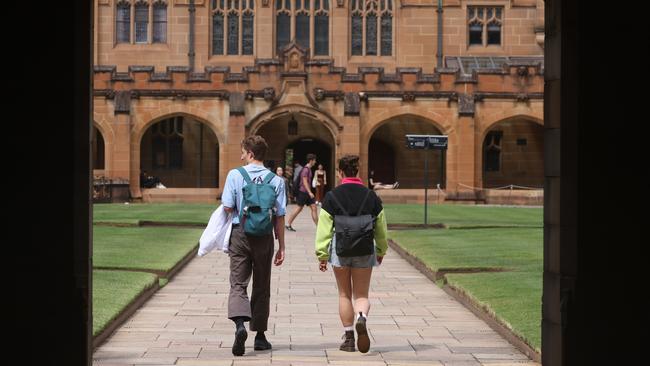
This strikes at the heart of the decline in Australian school standards. It suggests a clear-eyed determination by Labor’s new federal Education Minister, Jason Clare, to enhance teaching professionalism and confront the defects in classroom methods that have held back Australian schoolchildren for decades.
It follows the release of the report by the teacher education expert panel chaired by University of Sydney vice-chancellor Mark Scott, assisted by excellent panel members, which has made recommendations in two basic areas: how to attract quality candidates into teaching and ensure they have rewarding careers.
Last week, at Clare’s instigation, education ministers around the nation agreed in principle to the reforms. Provided they are implemented – that largely depends on the states – this will mark the beginning of the long-delayed effort to improve teaching and arrest the decline in Australian school performance.
The universities are principal agents in this failure. It is central to the disappointing outcomes from the Gonski funding model, the crazy culture war that has raged for decades over how children should be taught and the disorientation teachers feel entering classrooms after such inadequate training.
For years economists correctly said more funding of education would increase human capital development, leading to greater productivity. What the economists missed was this truth was valid only with proper teaching methods in the classroom – and those methods were missing in one of Australia’s greatest social and economic reform debacles across the past generation.
Interviewed by this column, Clare says: “I’m not interested in culture wars or fake fights. The only thing I’m interested in is what works, what’s going to help a child from school, like the one I went to, to catch up, to keep up and to finish school.
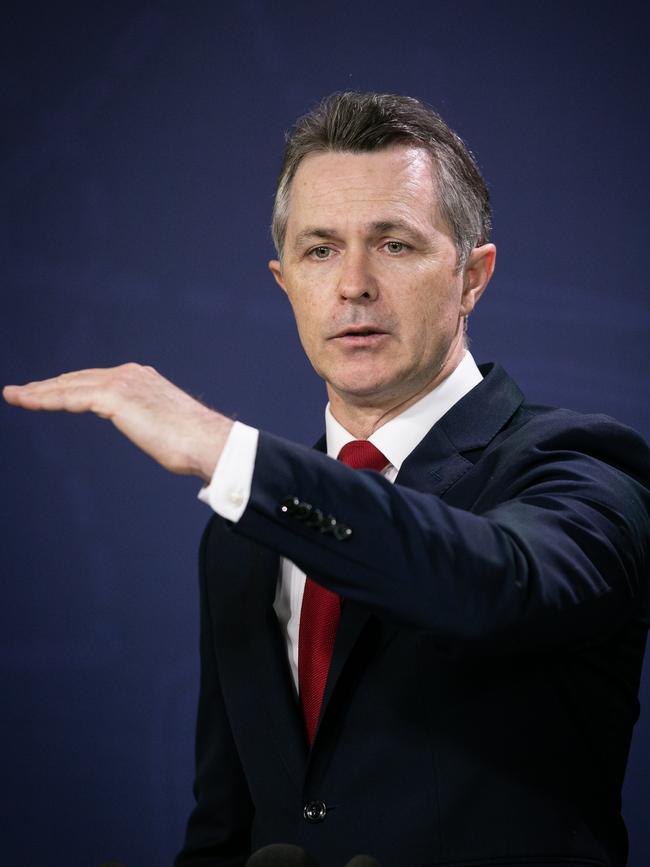
“The Productivity Commission put out a report in January where they assessed the current National School Reform Agreement. They were blistering in their criticism. They said it didn’t include any targets or any practical reforms. What it pointed out is if you’re a child from a poor family or the bush, you are three times more likely to fall behind at school, and if you’re one of those children you’re less likely to finish high school and less likely to go to university.
“If you ask a lot of teachers they’ll tell you the same thing – there wasn’t enough focus at university on the fundamentals, on the skills necessary to teach a child to read, to write, to do maths, to manage classroom behaviour. The practical experience wasn’t up to scratch, nowhere near what a nurse or doctor gets when they’re training in a hospital.”
This is exactly what former Coalition education minister Alan Tudge was saying when interviewed by this newspaper in 2021: “I believe that teacher education faculties are largely responsible for the decline. This goes back to the responsibility of universities in terms of the people they accept into teacher training courses but, more importantly, how they are trained. There is too much dogma at the expense of established evidence-based practices.”
The merit of the Scott report is that it goes to the fundamentals – that schoolchildren have not been properly instructed in reading, maths and science. Many recommendations sound shocking because they reflect a failure of first principles that would not be tolerated in the teaching of disciplines such as medicine.
The report says accredited teaching programs at universities must require “knowledge and evidence-based practices” for trainee teachers to deliver “the greatest impact on student learning”.
In his down-to-earth manner, after the report’s release Clare says this means ensuring student teachers understand “how children learn, how the brain works, how they retain information” and ensuring “they get taught the practices that actually work”. That means more knowledge-based explicit instruction by teachers.
To grasp the scale of the atrocity in many university courses, the equivalent would be a medicine course where students weren’t taught how the body functioned.
Consider the campaign waged by much of the education establishment against the injection of phonics into schools as the superior method of teaching children to read. Jennifer Buckingham, director of strategy at MultiLit, told this newspaper in 2021 that education faculties were still in denial of the scientific basis of reading instruction.
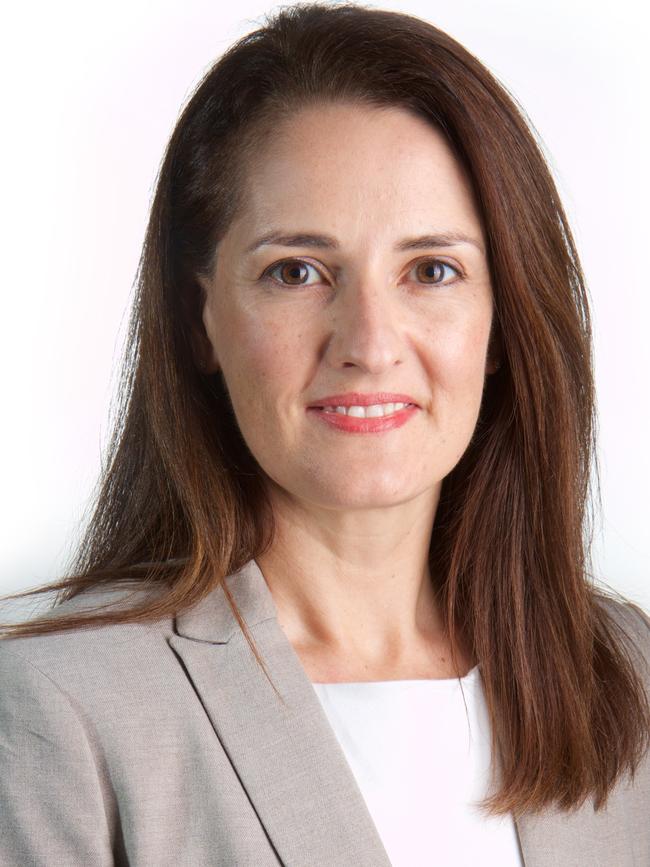
“There has been a philosophical bias towards a sociocultural view of literacy,” Buckingham said. “Those education faculties have been hollowed out of expertise in how to teach reading. The courses reflect the world view and the research interests of the academics that run them. We had about 50,000 students Australia-wide in 2019 who started secondary school with bare minimum reading skills, if any at all. That’s been going on year after year.”
Significantly, the Scott report says stakeholders “broadly supported” core content in teaching courses and enforcing this via program accreditation. The report recommends the creation of an initial teacher education assurance board to enforce national standards and accountability on universities. At the same time they would be given financial incentives to do the right thing.
Clare says the changes will be “mandated”. In truth, implementation won’t be easy. Resistance to evidence-based teaching practice has a disreputable history over a generation that has seen the betrayal of children and teachers. The inaction of the political class, paralysed by ignorance of the issues and vested interests, has allowed Australia’s deterioration to persist when other nations were reforming their systems.
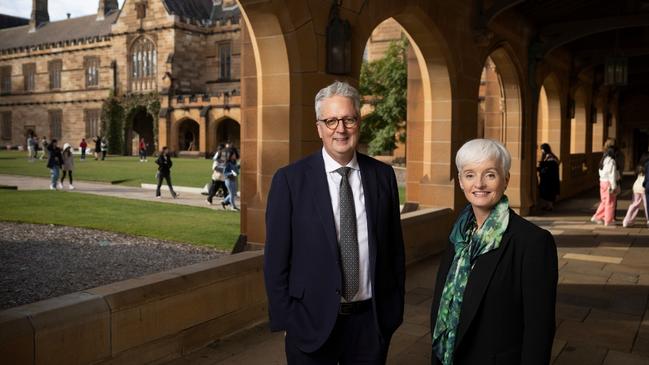
Clare says: “Mark’s report makes the point that only 50 per cent of people who start a teaching degree finish compared with 70 per cent of students who start any other degree and 20 per cent of teachers who finish the degree quit within the first three years on the job.
“The report argues – and ministers have accepted – that if you fix the course and improve the practical experience then three things will happen. No. 1, more students will finish the degree. No. 2, more new teachers will teach for longer. And No. 3, they will be more effective in the classroom from day one.”
Early signs are that Clare is shaping as a no-nonsense, non-ideological, evidence-based minister. That is exactly what is required to deliver these reforms. Being Labor is important since most state education ministers are also Labor. Clare knows he can’t dictate to the states.
“I think my state education ministers realise we’re not going to make long-lasting change unless we work together,” he says. “I don’t run schools or employ teachers. But I can provide national leadership and encourage more people to enrol in teaching at university and improve initial teacher education.”
The significance of the Scott report is its potential to bring education stakeholders on the new journey. Success will come only from the growth of a consensus of sorts, and that must not be ideological. It must be based on science and evidence. That is reflected in the Scott report and in Clare’s comments. Clare says teacher training reform is one part of his larger reform agenda that comes in three parts – in early, school and higher education reform.
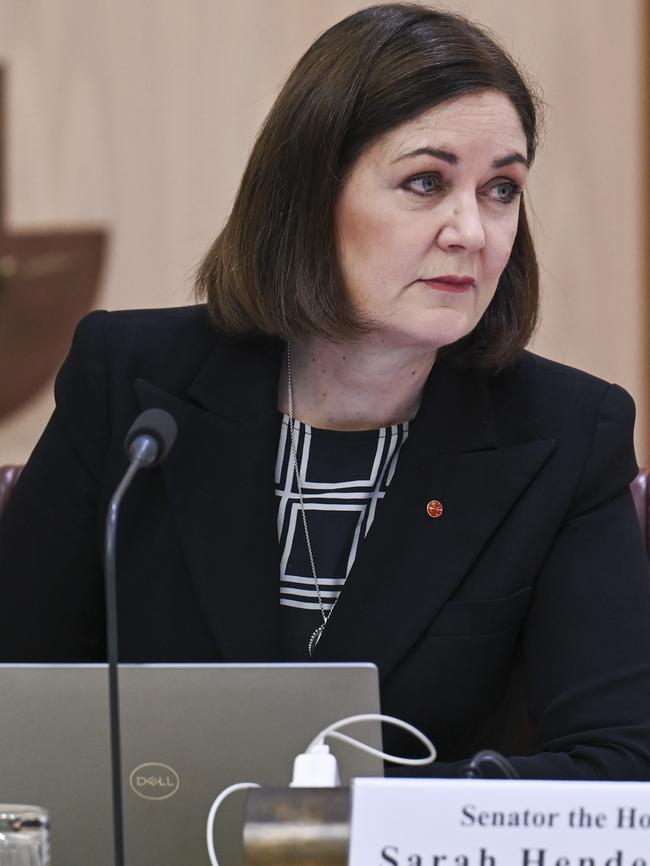
An encouraging sign is bipartisanship at the national level. Opposition education spokeswoman Sarah Henderson is committed to the reform following the teacher training initiatives taken by Tudge as former minister. “I continue to call for explicit instruction to be introduced into every Australian classroom,” Henderson says.
“By failing to prioritise evidence-based teaching, the vast majority of universities are failing to train teachers correctly and this needs to urgently change. If universities aren’t prepared to meet the grade on the teaching degrees they offer, they should not continue to be funded or permitted to offer teaching courses.”
The wheel is turning. The states are shifting and that’s the critical change. Much of the media has now come on board. The big question mark concerns the universities – they have ignored the national interest for too long.








Australia’s universities are about to be pulled into line over one of their greatest acts of betrayal. In an encouraging step – perhaps a breakthrough moment – federal and state education ministers have endorsed principles to redesign the university training of teachers.